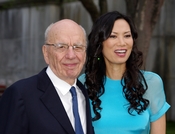TechnologyQ1. How has this external force impacted on Australian Industry?The current business environment is more dynamic and more vibrant than ever before. The intertwining of global markets has meant that overseas developments in technology, finance, and politics etc affect what goes on in business locally. According to Balnave, Mahoney and Rosier (2008, p. 132) today's managers should not only be aware of changes in their local environment, they should also be aware of changes in the global environment. This can be achieved through 'scanning' the environment for any changes, and then responding accordingly.
The development of technology, for example, has drastically changed the way we do business in Australia today, to the extent that we now refer to these times as the 'digital age' (Canning & Sinclair 2009). Publishing is an example of an industry that is greatly affected by the advent of technology.
The invention of the Internet is the primary reason that the shift away from traditional media has occurred.
Through it, one can socialize, research, and browse instantaneously. This is in contrast to newspapers and magazines, where information is delivered once in a 24-hour period. As a result, the circulation of this form of media has been in decline, which is the industries main form of income.
The Internet has also allowed a number of new competitors to enter into the market. Newspapers and magazines not only have to compete with each other, but with websites such as tmz.com and perezhilton.com. In my opinion, these websites have changed the face of the industry. Consumers now demand news/gossip that is delivered fast and the print media has had to change its focus.
New technologies with regards to printing are another factor that has influenced the Australian publishing industry. Digital printing, for example, has made printing mass produced literature faster and more efficient. It has also led to a new phenomenon in the industry known as 'print on demand'. The pace and ease in which publications are printed has allowed publishers to print on order, rather than printing in bulk and having that money wasted in storage.
E-books are another relatively new technology that is changing the landscape of the publishing industry. Many major publishers in Australia and around the world produce e-books along with their printed formats. There are even those in the industry which specialise purely in e-publishing.
Q2. How has an Australian organization responded to that change?News limited, the parent company of both the daily telegraph and the Australian, is a company that has had to respond quickly to that change. They have done so by embracing the technological advancements aforementioned, not trying to combat it. They have, in my view, used what was happening in the external environment as an opportunity, not a threat.
News limited papers have started to publish their material online. That way they can relay information to their readers much more quickly, and quite possibly reach a wider audience. Doing this however, has made them change the way the company initially generated income. Rather than relying on traditional forms of revenue making, i.e. circulation and subscriptions, the company has since learned to make money from digital media via Internet traffic (Canning & Sinclair 2009).
News limited has also taken advantage of how interactive the Internet can be by forming newslab.com. This Internet service allows users to comment and rate new technologies developed by their R&D section. This has allowed the company to get feedback on News limited services, giving them the edge over its competitors.
Even with these new developments however, the publishing industry is still remains a highly unpredictable and volatile market. It was only two months ago the ABC (29 August 2008) reported that News limited's rival 'the Sydney morning herald' would lay of 5% of staff. In a speech to newspaper editors, Newscorps founder Rupert Murdoch (April 13 2005) has expressed his concern over the future of print media, indicating that he may opt out of the industry. It is my view, that if News limited were to stop investing in its newspapers, then print media as we know it will disappear from Australia.
ReferencesBalnave Dr N, Mahony, Dr K & Rosier, G 2008, Management Dynamics, 2nd edn, Pearson Education Australia, SydneyABC 2008, 'SMH columnist sacked over Fairfax strike', 29 August, viewed 15 March 2009, Newscorp.com 2005, Speech by Rupert Murdoch to the American society of newspaper editor, viewed 23rd March 2006,Canning, S Sinclair, L 2009, 'Channeling into the digital age', The Australian, 23 March, viewed 23 March 2009,





